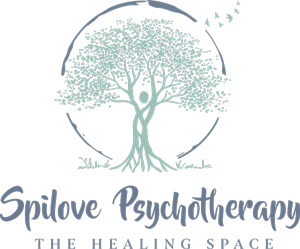I’ve created a list of 5 simple ways you can create more space in your day utilizing mindfulness to prevent burnout and overwhelm.
Using Emotion-Focused Therapy in Couples Therapy by Megan Delp
Do you feel like you’ve lost the connection you used to have with your partner? Emotionally-focused therapy (EFT) can help in the process of rebuilding the relationship from the ground up. Through the process of building more empathy and communication skills within the relationship, a path forward can be established.
5 Ways To Be A Better Listener: Communication Through DBT Skills
DBT for Communication
by Megan Delp, MFT
The Dialectical Behavioral Therapy (or DBT) tenant called Interpersonal Effectiveness teaches us how to be a more effective communicator through learned to be a better listener. We have always known that progress depends on the ability to communicate effectively. The most effective communication does not begin with what a person says, but how well they hear the person they are communicating with. Only by listening effectively can you respond appropriately inany situation.
Throughout all forms of communication (reading, seeing, speaking, listening), we spend 40% of that time listening. And yet, we get less training in listening than in any other kind of communication. All throughout childhood, we are taught how to speak, how to read, but very little time is spent on learning how to listen. Learning to listen is difficult, but worth it.
For instance:
You can not NOT communicate. We're communicating verbally or nonverbally all the time.
Whenever contact is made, some form of communication does occur.
The true meaning of something is not in the words we use, it's in how people interpret the words.
Yet the meanings cannot be transferred. We can't just put a computer file directly in someone's head. We can only send the words. So listening becomes a critical skill if we are going to fully understand the meaning someone is trying to send us.
We have the ability to listen in many different ways - it is important to be able to distinguish how we are approaching our communication so that we are prepared to handle it effectively.
The Five Listening Approaches are:
1. Appreciative:
People are more likely to listen if you feel inspired by what you are hearing or if you are enjoying yourself. You’re not necessarily interested in the details when you are using Appreciative Listening, rather you are more focused on the impression of the experience.
2. Empathic:
This style is often a sounding-board to others. A person would offer support to the person they are listening to. They focus specifically on the feelings revealed by the person they are listening to. If you are often approached by people who need to confide or vent about something, you will know that's your typical approach to listening! This style is much more focused on offering compassion.
3. Comprehensive:
A comprehensive listener can recognize key details between one message and another even when the speaker is less than organized. They can also recognize when someone doesn't understand what is being said and can re-explain clearly in their own words.
4. Discerning:
This approach of listening wants to get all the information and may take detailed notes. Distractions can be very disturbing when using this listening approach. An example would be when other people are talking in class and you are trying to get all the notes.
5. Evaluative:
When listening with an evaluative approach, the listener will not automatically accept what is being said as true just because an expert says it. If they disagree, they will simply stop listening. They will also be more doubtful if the speaker is too passionate about their topic. This approach can be helpful when evaluating something and making a decision about it.
It can be highly useful to adapt your listening approach to the needs of the situation. For example, if a close friend is sharing their difficulties with you, you would want to be empathic and not evaluative. You have probably had the experience of someone giving you unsolicited advice when you really just wanted them to empathize with you! The opposite can also be true. When you recognize the correct listening approach in any situation, and use the appropriate listening approach, you can build better relationships, make the correct decisions and use your interpersonal effectiveness skills. It all starts with learning how to listen!
Megan Delp, MFTI
Megan is a pre-licensed Marriage and Family Therapist specializing in couples counseling and individual therapy for those struggling with depression, anxiety and relationship issues. Megan practices with Spilove Psychotherapy in West Chester, Pennsylvania and on the Main Line of Philadelphia in Bryn Mawr. For more information or to schedule a free 15 minute phone consultation, contact us here.
5 Things You need to know before you start counseling
So, you’ve decided to start counseling and you’re ready to go. Perhaps you’ve never done therapy before or maybe you’re looking to take a new approach. Here are some things you need to know before you start counseling.
1. Finding a therapist that you feel safe with is most important.
You can line up a bunch of great therapists, but if they’re not the best fit for you, you’re not going to do the intense, deep work you’re looking to do. The role of a therapist is to be a guide through your journey, reflect back to you what we see and help you to overcome obstacles towards meeting your goals. If you don’t click with your therapist or don’t feel safe enough to trust them, reaching your goals with them is unlikely. Your therapist should be someone you can relax around and speak freely without fear of being judged. Trust and safety are of paramount importance when you’re looking to do deep work on things like eating disorders, trauma, PTSD, couples’ work or issues specific to the LGBTQIA community.
2. Specialties mean that there’s been special training in a particular issue.
Our training in graduate school and doctoral programs very rarely provides training for specific diagnoses like PTSD, eating disorders or addictions. So when a therapist decides to have a particular specialty, we need to seek out training geared specifically towards these issues. If you notice that a therapist you’re interested in has indicated that we specialize in a particular area, you might want to ask us what sorts of training we’ve done to qualify us as an expert. This will give you a better idea of how equipped we are to help you with your specific struggle.
3. When you hire a therapist, you are paying for a space that is yours, for you.
I’ve heard people say that therapy is like paying someone to be your friend. This is actually not true. When you hire a therapist and you pay money, what you are paying for is a safe, neutral, objective space and time where you can do your work. It is an energy exchange. You are not paying your therapist to care about you, you are paying for an hour in a room that is completely and totally about you and no one else. In friendships, there’s a give and take, there’s a social obligation to ask how they are and be a support to them. In a relationship with your therapist, you are taking time for yourself only and receiving support that is not reciprocated emotionally, only financially. This dynamic can be extremely healing and empowering and for many, it is the only time and space where healing can truly take place.
4. The more consistently you go, the more effective therapy is.
Sometimes, in an attempt to save money or save time, people want to schedule therapy sessions every other week or once per month. While there’s nothing particularly wrong with scheduling like this, you may want to rethink the frequency and consistency of your therapy schedule. You don’t have to be in therapy forever. You can establish and work towards specific measurable goals with your therapist and see regular progress. However, progress is more difficult to measure when you attend therapy inconsistently. You may be having symptoms of PTSD, for example, and when several weeks go by without working on those particular symptoms, it is more difficult to get traction. If you’re struggling with binging and purging and you go every week, you can check in with your therapist about the particular triggers and behaviors that may have lead to your binge and purge. Don’t take my word for it, check it out for yourself. Set a goal with your counselor and try going weekly, write down your progress and notice the differences between your weekly sessions over a period of at least 3 months versus bi-weekly or monthly progress over a 3-month period. You may be surprised with the results.
5. Therapy happens in stages.
Sometimes we think that as soon as we set foot in the door of a therapy office, we will be “cured” immediately or within a few sessions. The reality is that there’s a therapeutic process which happens in stages. The first stage is joining with your therapist or learning to trust them. When we meet a new friend, we don’t usually tell them our deepest darkest right off the bat, it takes time and trust building to get to a place where we know they are a good friend. A similar concept is applied in therapy. Depending on the client, the level and amount of trauma and defenses, this stage can take anywhere from about a month to sometimes a year or even more. Safety, trust and a therapeutic bond, known as a therapeutic alliance, is formed in order for the therapist to really know and understand the client and for the client to feel safe enough to open up and do their work.
The second stage is where the work is done. Since there’s now an underlying foundation established between therapist and client, the second stage is about vulnerability. There is an unpacking, uncovering, examining and exploring the process that happens with the client and their trauma or their history. This stage is where people see their patterns and make shifts and changes in their thoughts, beliefs, and behaviors. The second stage of the therapeutic process is where clients reach their goals.
The third stage may or may not be part of the therapeutic process, dependent upon the client’s preference. This stage is for maintenance. The client continues therapy but perhaps doesn’t come every week any longer. They use their therapist to check in with, get help with issues as they arise and review the goals and behaviors they established during the second stage. Some people choose to forego this step and skip to the fourth stage.
The fourth stage of counseling is a closure process. After attaining goals in the second stage, and maintaining new behaviors and thought processes in the fourth stage, this last and final stage is a review of accomplishments, work together and closure of the therapeutic relationship. If the client chooses to end counseling, this practice of review and closure can be especially healing for those who have experienced traumatic grief or loss. Saying goodbye in a healthy way, honoring the relationship without suddenly cutting it off is a beneficial process to learn about emotional maturity and sophistication.
I hope these tips have been helpful. Please feel free to comment below with any other tips or feedback you have on this topic. If you’d like to speak further about starting counseling or have any other questions about some of the things I’ve mentioned, please contact me at TiffanySpilove@yahoo.com or call 610-314-8402. I wish you luck in your endeavors and look forward to hearing from you soon!!












